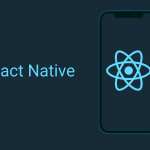In the ever-evolving world of technology, few innovations have generated as much excitement and curiosity as quantum computing. It promises to solve problems that even the most advanced supercomputers today cannot handle. As we step into 2025, quantum computing is transitioning from theory to reality, shaping the next era of computing power, innovation, and discovery.
This isn’t just a new type of computer; it’s a complete redefinition of how computation works. Understanding quantum computing what it is, how it functions, and why it matters can help us prepare for a future where quantum technology becomes the backbone of digital progress.
Table of Contents
Understanding Quantum Computing
To grasp the significance of quantum computing, we first need to understand how it differs from traditional computing.
Conventional computers process information using bits the smallest unit of data represented as 0 or 1. Quantum computers, however, use qubits (quantum bits). Unlike traditional bits, qubits can exist as 0, 1, or both at the same time, a phenomenon known as superposition.
Additionally, quantum computing takes advantage of entanglement, another quantum principle that allows qubits to be linked together. When qubits are entangled, the state of one qubit directly influences the state of another, even if they are far apart.
The State of Quantum Computing in 2025
As of 2025, quantum computing is no longer confined to research labs. Tech giants such as IBM, Google, Microsoft, and startups like IonQ and Rigetti are leading the race to develop scalable quantum systems.
IBM has already introduced quantum cloud platforms, giving developers and researchers access to quantum processors online. Google’s Sycamore processor achieved “quantum supremacy” by solving a problem in seconds that would take traditional supercomputers thousands of years. Meanwhile, D-Wave is pushing forward with quantum annealing for optimization problems.
However, quantum computing is still in its early experimental stage. Current machines face major challenges, such as qubit instability, error correction, and temperature control, as quantum processors must be kept at temperatures near absolute zero to function properly. Despite these challenges, progress is accelerating rapidly.
Quantum vs. Classical Computing: Collaboration, Not Competition
It’s important to understand that quantum computers won’t replace classical computers. Instead, they’ll complement them.
While classical computers are better for day-to-day tasks like browsing, gaming, and document processing, quantum computers excel at complex problem-solving and optimization. In the future, hybrid systems combining both quantum and classical architectures will likely become standard, allowing users to take advantage of both worlds.
For example, a hybrid computing model could use quantum systems to analyze massive datasets while a traditional system handles visualization, reporting, and interface management.
Quantum Computing and Cybersecurity
One of the most discussed impacts of quantum computing is its effect on cybersecurity. Traditional encryption methods, such as RSA and ECC, rely on the difficulty of factoring large numbers or solving mathematical problems challenges that quantum computers could potentially solve in seconds.
In the long run, quantum technology might actually enhance cybersecurity through quantum key distribution (QKD) a method that uses the laws of quantum physics to create secure, tamper-proof communication channels.
The Future Impact on Industries
As quantum computing matures, its impact will be felt across nearly every sector.
- Healthcare: Quantum simulations could unlock cures for diseases by modeling protein folding and drug interactions at the atomic level.
- Energy: Power grids could be optimized in real-time, improving efficiency and reducing waste.
- Logistics: Companies like FedEx and Amazon could use quantum algorithms to optimize delivery routes and supply chains instantly.
- Finance: Quantum systems will process complex market simulations, revolutionizing predictive analytics.
- Technology: The combination of quantum computing and artificial intelligence will lead to entirely new forms of automation and decision-making systems.
In essence, quantum computing will redefine innovation across all industries, much like the internet and AI did before it.
Challenges and Ethical Considerations
Despite its promise, quantum computing poses several ethical and societal challenges. The technology’s power could be misused for cyberattacks, surveillance, or data theft. Moreover, there’s a growing concern about unequal access nations and corporations with quantum dominance could hold disproportionate power.
To ensure a balanced future, experts emphasize the need for global collaboration, ethical AI standards, and quantum governance frameworks that promote transparency, fairness, and accessibility.
Preparing for the Quantum Future
For individuals and organizations, the time to prepare for quantum computing is now. Developers can start learning quantum programming languages like Qiskit or Cirq. Businesses can begin exploring quantum cloud services and post-quantum security measures. Governments and educators must update curricula to include quantum literacy and ethics.
By understanding quantum principles today, we can better adapt to the revolutionary changes of tomorrow.
Conclusion
Quantum computing represents the next frontier in technological evolution a leap as significant as the invention of electricity or the birth of the internet. It holds the potential to transform industries, accelerate discovery, and redefine what is possible in science and innovation.
While challenges remain, the journey toward quantum computing is well underway. The future will not belong to those who wait but to those who prepare. Also Check Hidden Dangers of Deepfakes – Ultimate Free Guide – 2025







1 thought on “Exploring Quantum Computing in 2025 – The Next Big Thing”